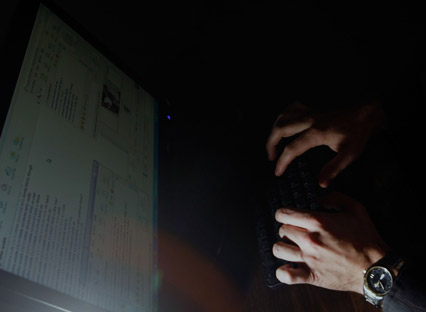New Europol unit to hunt down Islamic State online
New European team will track down the people behind Islamic State's social media campaigns

A free daily email with the biggest news stories of the day – and the best features from TheWeek.com
You are now subscribed
Your newsletter sign-up was successful
A newly created Europe-wide police force will track and block social media accounts found to be disseminating Islamic State propaganda and recruitment information online.
The European police agency Europol announced that it will work with several unnamed social media companies to help combat the spread of Islamic State's online campaigns by closing accounts linked with the militant group. The team will also attempt to track down the people behind the dissemination of IS information.
Some estimates suggest that 100,000 tweets a day are circulated from 45,000 to 50,000 accounts associated with the group, which controls territory across Iraq and Syria, The Guardian reports.
The Week
Escape your echo chamber. Get the facts behind the news, plus analysis from multiple perspectives.

Sign up for The Week's Free Newsletters
From our morning news briefing to a weekly Good News Newsletter, get the best of The Week delivered directly to your inbox.
From our morning news briefing to a weekly Good News Newsletter, get the best of The Week delivered directly to your inbox.
The Brookings institute in Washington suggests that the number of IS-linked accounts could be even higher, possibly around 90,000, the BBC reports.
Europol's director, Rob Wainwright, told the Guardian that the new unit would try to prevent IS from targeting young people. He said they would investigate questions such as: "Who is it reaching out to young people, in particular, by social media, to get them to come, in the first place?"
He added that tracking them down was difficult "because of the dynamic nature of social media", but pledged to "identify the ringleaders online" and bring them to justice.
Since 2013, 700 British people are believed to have travelled to territory controlled by IS in Syria and Iraq. The group is also known to have attracted volunteers from other European countries including Belgium, France and Holland.
A free daily email with the biggest news stories of the day – and the best features from TheWeek.com
Wainwright says that the group tends to attract "disaffected" youths from teenage gangs in Europe who see IS as a "bigger gang in Syria".
British home secretary, Theresa May, said that Britain must support the EU in the fight against IS. She said the threat was a common one across Europe, "and if we are to defeat it, we need to work together".
May added: "We have also supported the EU in setting up an internet-referral unit at Europol to address the increasing amount of terrorist and extremist propaganda available on the internet, and I am pleased to say the UK will be seconding a police officer to this unit."
-
 AI surgical tools might be injuring patients
AI surgical tools might be injuring patientsUnder the Radar More than 1,300 AI-assisted medical devices have FDA approval
-
 9 products to jazz up your letters and cards
9 products to jazz up your letters and cardsThe Week Recommends Get the write stuff
-
 ‘Zero trimester’ influencers believe a healthy pregnancy is a choice
‘Zero trimester’ influencers believe a healthy pregnancy is a choiceThe Explainer Is prepping during the preconception period the answer for hopeful couples?
-
 Epstein files topple law CEO, roil UK government
Epstein files topple law CEO, roil UK governmentSpeed Read Peter Mandelson, Britain’s former ambassador to the US, is caught up in the scandal
-
 Iran and US prepare to meet after skirmishes
Iran and US prepare to meet after skirmishesSpeed Read The incident comes amid heightened tensions in the Middle East
-
 Syria’s Kurds: abandoned by their US ally
Syria’s Kurds: abandoned by their US allyTalking Point Ahmed al-Sharaa’s lightning offensive against Syrian Kurdistan belies his promise to respect the country’s ethnic minorities
-
 Grok in the crosshairs as EU launches deepfake porn probe
Grok in the crosshairs as EU launches deepfake porn probeIN THE SPOTLIGHT The European Union has officially begun investigating Elon Musk’s proprietary AI, as regulators zero in on Grok’s porn problem and its impact continent-wide
-
 Israel retrieves final hostage’s body from Gaza
Israel retrieves final hostage’s body from GazaSpeed Read The 24-year-old police officer was killed during the initial Hamas attack
-
 China’s Xi targets top general in growing purge
China’s Xi targets top general in growing purgeSpeed Read Zhang Youxia is being investigated over ‘grave violations’ of the law
-
 Syria’s Islamic State problem
Syria’s Islamic State problemIn The Spotlight Fragile security in prison camps leads to escape of IS fighters
-
 Panama and Canada are negotiating over a crucial copper mine
Panama and Canada are negotiating over a crucial copper mineIn the Spotlight Panama is set to make a final decision on the mine this summer